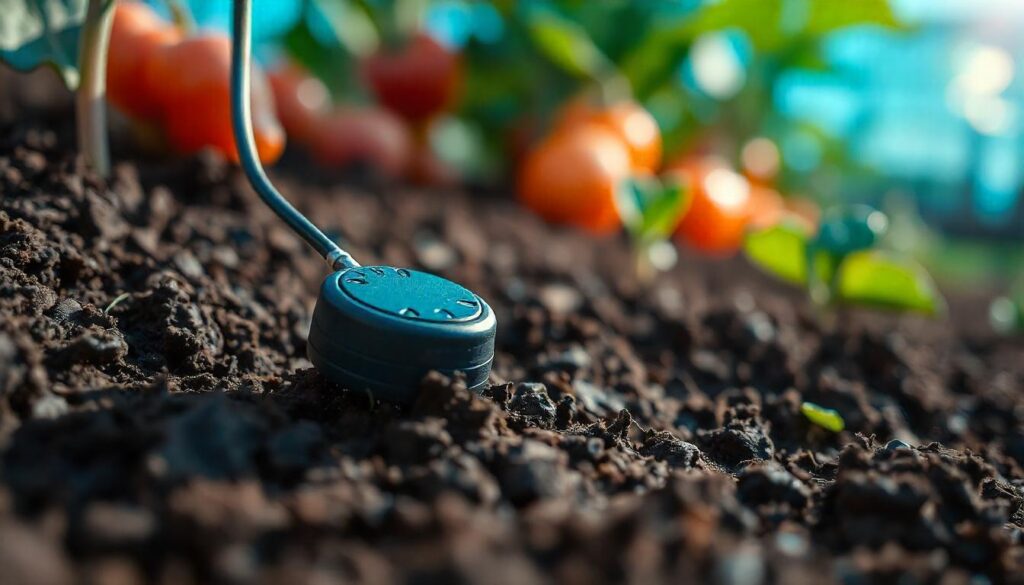Introduction
In 2025, the agricultural landscape is being transformed by a wave of technological innovations that promise to enhance efficiency, sustainability, and food production. The future of farming is digital, with cutting-edge gadgets helping farmers tackle global food security challenges while promoting eco-friendly practices. From drone-assisted crop monitoring to AI-powered irrigation systems, these high-tech tools are revolutionizing how we grow food, paving the way for a more sustainable and efficient agricultural system.
Drone-Assisted Crop Monitoring
One of the most groundbreaking advancements in modern farming is the use of drones for crop monitoring. These aerial devices, equipped with high-resolution cameras and advanced sensors, are now an essential tool for farmers. Drones can survey large swaths of farmland quickly, collecting data on crop health, soil conditions, and pest activity. By providing real-time, detailed insights, drones enable farmers to detect issues early and respond with targeted solutions. This means less reliance on pesticides and fertilizers, reducing chemical usage and waste while promoting environmentally responsible farming practices.
AI-Powered Irrigation Systems
Water management is a critical issue in agriculture, particularly in areas prone to drought or irregular rainfall. AI-powered irrigation systems are helping farmers optimize water usage by taking the guesswork out of irrigation. These systems collect data from weather forecasts, soil moisture sensors, and crop needs, allowing farmers to water their crops more precisely. Rather than following a fixed schedule, AI systems deliver the right amount of water at the right time, significantly reducing water waste. This not only helps conserve valuable water resources but also improves crop yields by ensuring that plants receive the exact hydration they need.
Precision Farming with GPS and Automation
Precision farming is taking efficiency to the next level. GPS-guided tractors and automated harvesters are now commonplace on many farms, ensuring greater accuracy and productivity. GPS technology allows for precise planting, fertilizing, and spraying of crops, reducing the amount of chemicals and fertilizers used. Automated harvesters, meanwhile, reduce labor costs and improve the accuracy of harvesting, allowing farmers to collect crops at peak ripeness without waste. These innovations ensure that every acre of farmland is used to its fullest potential, maximizing crop yields while minimizing environmental impacts.
Sustainability at the Forefront
Sustainability is a driving force behind many of these technological innovations. The farming industry has long been under scrutiny for its environmental impact, particularly concerning resource use and emissions. However, these new technologies are helping farmers reduce their carbon footprint and adopt more eco-friendly practices. For example, many high-tech farming tools are designed to be energy-efficient and are powered by renewable sources such as solar power. Furthermore, precision farming reduces the need for excessive pesticide and fertilizer application, lessening the environmental impact of agricultural practices.
The ability to monitor and manage crops more effectively also helps reduce food waste. By ensuring that crops are harvested at the right time and in the right conditions, these technologies help maximize food production and minimize losses.
Tackling Global Food Security Challenges
As the global population continues to rise, the demand for food is greater than ever. The digital revolution in farming is crucial in meeting this demand while also addressing concerns about sustainability and environmental preservation. By adopting these high-tech tools, farmers are able to produce more food with fewer resources, ensuring that future generations will have access to the food they need.
In addition, these technologies enable farmers to better adapt to climate change. AI-driven systems and drones can monitor changing weather patterns and soil conditions, providing valuable information to help farmers make informed decisions in the face of unpredictable climates. This adaptability is essential in a world where extreme weather events are becoming more frequent and intense.
Looking Ahead: The Future of Farming
As 2025 unfolds, the role of technology in farming is only set to grow. The tools that are transforming agriculture today are just the beginning. From autonomous farming equipment to blockchain-powered supply chains, new technologies will continue to emerge, reshaping the way we produce and consume food.
The future of farming is undoubtedly digital, and it is one that offers both increased productivity and sustainability. With the right combination of innovation, data, and eco-conscious practices, technology can help create a more sustainable and food-secure future for the world. The next generation of farming is here, and it is powered by cutting-edge technology and a commitment to sustainability.


